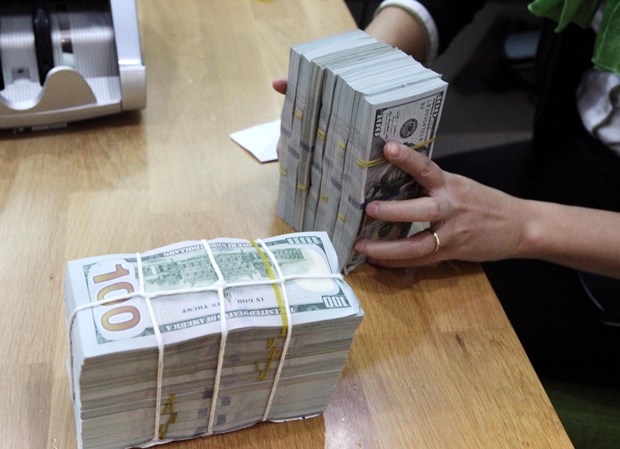US Fed rate hike insignificant for Vietnam economy, say experts
The Fed’s latest move did not come as a surprise to the market, as many had anticipated a rise in interest rates due to record inflation in the US during the past months.
 Illustrative image. (Photo: VNA)
Illustrative image. (Photo: VNA)The Fed’s latest move did not come as a surprise to the market, as many had anticipated a rise in interest rates due to record inflation in the US during the past months.
However, according to banking and finance expert Can Van Luc, it still leaves certain implications for Vietnam.
Firstly, this move will increase the cost of borrowing and repaying foreign debt in US dollars, he said. Secondly, it will have a partial impact on the exchange rate because the US dollar has been and will continue to appreciate and the exchange rate will rise slightly. Thirdly, the Fed’s move can affect foreign investment capital flow. When the Fed raises interest rates, capital flows might be back to the US due to higher interest rates or to Europe to shelter risk.
However, Luc said that the possibility of capital movement out of Vietnam is small because the country is still considered an attractive investment market.
"The Fed's interest rate hike will have a small impact on Vietnam's economic recovery but not significantly," he said.
Meanwhile, many others believe that the Fed's move will not have much influence on the exchange rate in Vietnam.
Nguyen Ba Khang, deputy director of the National Financial Supervisory Information Centre under the National Financial Supervisory Commission, said that inflation in Vietnam is currently much lower than that in the US, so the Fed's interest rate hike will not impact the domestic exchange rate very much.
Current interest rate should be maintained
Dr Chau Dinh Linh, a lecturer at the Ho Chi Minh University of Banking, said that the best scenario for Vietnam is to maintain the current interest rate and quickly implement a supporting package worth VND 40 trillion VND (1.7 billion USD) which offers preferential interest rates for businesses to restore production and business.
Vietnam's foreign exchange reserves have climbed to a record of nearly 110 billion USD. The figure has quadrupled since 2015 and 10 times higher than in 2010, he said, adding that it will continue to increase in the near future in line with the scale of the economy.
High foreign exchange reserves help strengthen national security, prevent external impacts, and enhance the confidence of domestic and foreign investors. Linh went on to say that large foreign exchange reserves and surplus balance of payments are favourable conditions to support the State Bank of Vietnam (SBV) to keep the exchange rate stable.
The expert believed that managing foreign exchange reserves is a very important task of the SBV because it helps ensure the solvency of the country in the event of a currency crisis. The funds are used to intervene in the domestic foreign exchange market in line with the objectives of the national monetary policy.
According to Linh, the average growth of remittance to Vietnam for the past three years stood at 4.4% per year and could reach 18.9 billion USD this year. FDI disbursement, which continues to increase sharply, will support the exchange rate. The flexibility in exchange rate management of the SBV in recent years has also contributed to stabilising the exchange rate.
Luc emphasised that the exchange rate this year will face greater pressure than the previous year, but remains stable. It is expected that the exchange rate this year will increase by 0.5% - 1% compared to last year due to the relatively good foreign currency supply-demand relationship.
Experts suggested that people should be cautious about the Fed's moves from now until the end of the year. If the Fed raises interest rates many times with strong intensity, it will be hard for the domestic exchange rate to avoid psychological impact, they said./.













